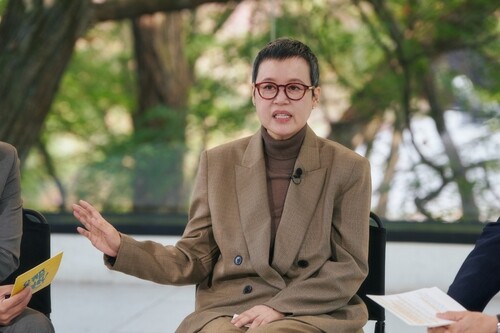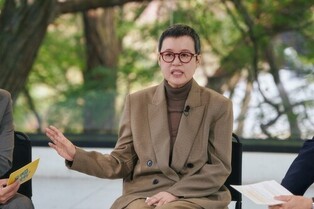BOK rate policy-full text
Full text of BOK statement on monetary policy decision in October
SEOUL, Oct. 19 (Yonhap) -- The Monetary Policy Board of the Bank of Korea decided today to leave the Base Rate unchanged at 3.50% for the intermeeting period. Although inflation is projected to continue its underlying trend of a slowdown, uncertainties regarding the future path of inflation and growth have risen significantly due to a prolongation of restrictive monetary policy stances in major countries and heightened geopolitical risks. In addition, it is forecast that the pace of inflation slowdown will moderate more than previously expected, and it is necessary to monitor household debt growth. The Board, therefore, sees that it is appropriate to maintain its current restrictive policy stance. Regarding the need to raise the Base Rate further, the Board will make a judgement while assessing the changes in domestic and external policy conditions.
The currently available information suggests that uncertainties regarding economic and inflationary trends have increased across the global economy, driven by a prolongation of restrictive monetary policy stances in major countries and by the Israel-Hamas conflict. Global economic growth is projected to continue slowing. Inflation in major countries still remains high, though falling gradually, and upside risks have increased due to the rise in global oil prices. In global financial markets, volatility of major price variables has increased with government bond yields rising significantly and with the U.S. dollar strengthening considerably. Looking ahead, the Board sees global economic growth and global financial markets as likely to be affected by the movements of global oil prices and the global inflation slowdown, by monetary policy changes in major countries and their effects, and by developments in the Israel-Hamas conflict.
Domestic economic growth has continued to improve at a modest pace owing to the easing of sluggishness in exports, although the recovery in private consumption has been somewhat slow. Labor market conditions have been generally favorable, as both a low unemployment rate and a robust increase in the number of persons employed have continued. Going forward, domestic economic growth is expected to improve gradually with the easing of the sluggishness in exports. GDP growth for the year is expected to be generally consistent with the August forecast of 1.4%. However, uncertainties surrounding the economic outlook are judged to be elevated, affected by heightened geopolitical risks and by the prolongation of restrictive monetary policy stances in major countries.
Consumer price inflation has risen from August to 3.7% in September, due to the increase in the price of energy and of agricultural products. However, both core inflation (excluding changes in food and energy prices from the CPI) and short-term inflation expectations among the general public have stayed at 3.3% in September, the same as in August. Looking ahead, it is forecast that consumer price inflation will fall to the lower-3% range at the end of this year and will continue to gradually moderate in 2024. However, upside risks to inflation have increased due to the effects of higher global oil prices and exchange rates, and due to the Israel-Hamas conflict. Accordingly, it is judged that the timing of consumer price inflation converging on the target level is more likely to be delayed than previously expected. Meanwhile, core inflation is also projected to maintain its underlying slowing trend, owing to the weakening of demand-side pressures. However, the pace of the slowdown is likely to be more modest than previously forecast due to the continuing spillover effects of accumulated cost pressure.
In financial and foreign exchange markets, volatility has increased as the U.S. Federal Reserve has signaled a prolongation of a high policy rate and as geopolitical risks have expanded. Long-term Korean Treasury bond yields and the Korean won to U.S. dollar exchange rate have risen significantly and stock prices have fallen. Meanwhile, the risks to some non-bank financial sectors have eased. Housing prices have continued their upward trend, especially in Seoul and its surrounding areas. Household loans have continued to increase, mainly driven by housing-related loans.
The Board will continue to conduct monetary policy in order to stabilize consumer price inflation at the target level over the medium-term horizon as it monitors economic growth, while paying attention to financial stability. While domestic economic growth is forecast to gradually improve, uncertainties surrounding the policy decision have also risen. The Board, therefore, will maintain a restrictive policy stance for a considerable time with an emphasis on ensuring price stability, while making a judgement regarding the need to raise the Base Rate further. In this process, the Board will thoroughly assess the inflation slowdown, financial stability risks, economic downside risks, monetary policy changes in major countries, household debt growth, and developments in geopolitical risks.
(END)
(C) Yonhap News Agency. All Rights Reserved


































